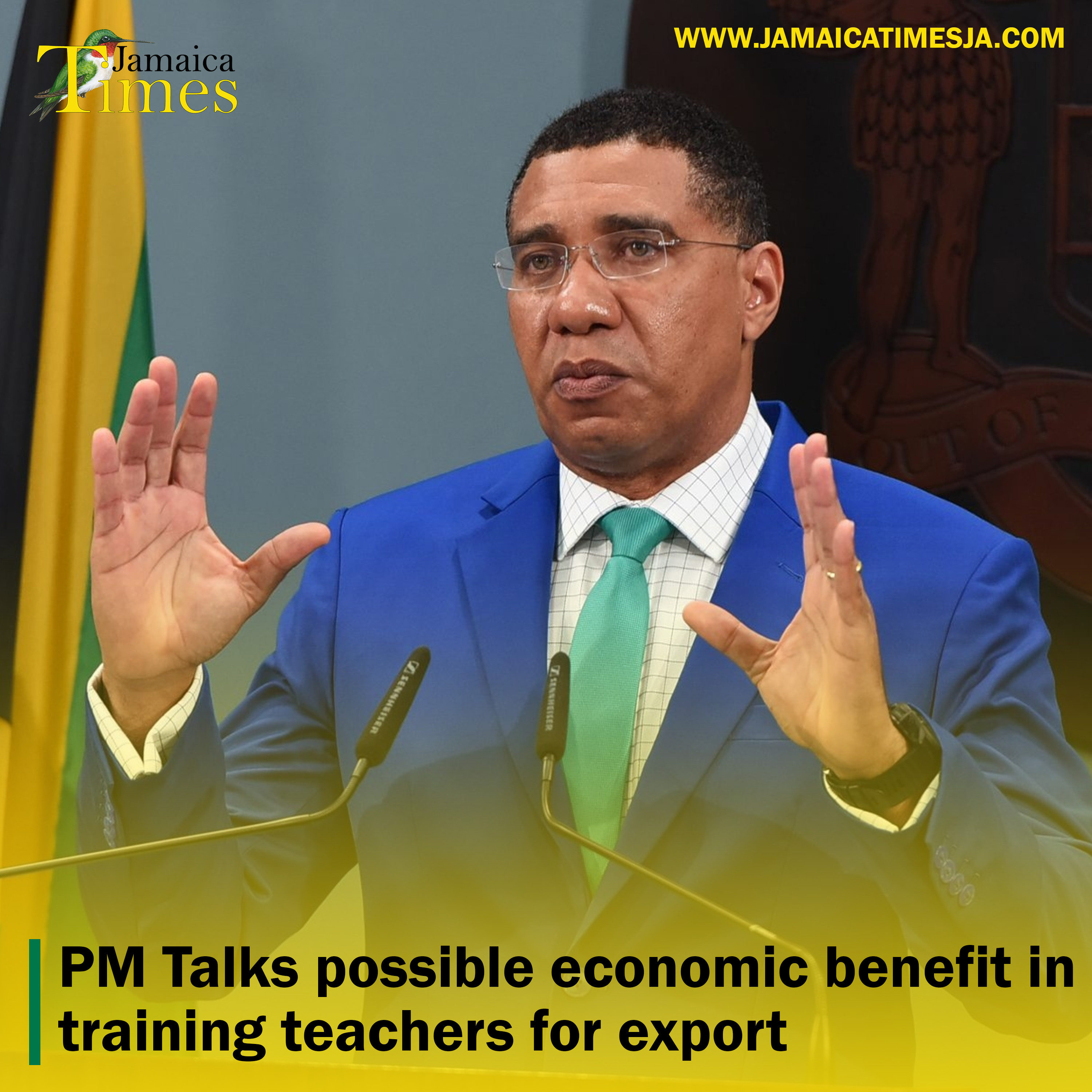Prime Minister Andrew Holness says the country could stand to benefit economically if more teachers are trained locally, to be exported to other countries facing similar shortages of educators.
Holness, in his first public commentary on the migration of Jamaican teachers which has taken centre stage recently, noted that the situation highlights that quality educators are produced locally and are in high demand elsewhere.
"It says how well our system operates and maybe, whilst we view it (teacher migration) as a threat, maybe we need to look at it in a systematic and strategic way to say to those persons who want to take up our teachers, 'Pay us to train teachers for you', and who knows, maybe there are some economic opportunities there that should be pursued," declared Holness.
He was speaking at an awards ceremony Tuesday in honour of several students who sat the 2022 Primary Exit Profile (PEP) examinations.
During a press conference in Kingston on Monday, Education and Youth Minister Fayval Williams stated that 167 public school teachers have resigned over the last two months.
However, 964 specialist teachers were available for employment to fill those vacancies.
Though citing the potential benefit of teacher migration, the prime minister emphasised that the situation poses a potential threat to the Jamaican education system.
"Whilst there is very little the Government can do to prevent the exercise of someone's free will to take up an opportunity and an advantage that they would gain, the Government of Jamaica still views these developments as a potential threat — a potential challenge — to deliver quality education to our children," he explained.
"Oftentimes, teachers who are recruited are our best teachers, and oftentimes, the teachers in the most critical subject areas are recruited," Holness indicated.
He lauded the Ministry of Education and Youth for the solutions it put forward to the nation on Monday, which are geared towards tackling any fallout from the resignation of teachers.
The prime minister pointed to the hiring of retired teachers and the use of information and communications technology (ICT) as two strategies by the ministry that were welcomed.
Still, Holness said there were other options that could be explored, to combat any impact from teacher migration, including the relocation of teachers from underpopulated schools.
"It may become necessary, and it may actually prove advantageous to have relocation from some schools that are underpopulated to schools that need the teachers.
"Now, you have to ensure that you are matching the required teacher that you need coming from an underpopulated school, but those logistics can be worked out in the Ministry of Education," he cautioned.
In reiterating the challenges ahead for the island's schools, Holness said, "all of these possible solutions are going to be pursued."

